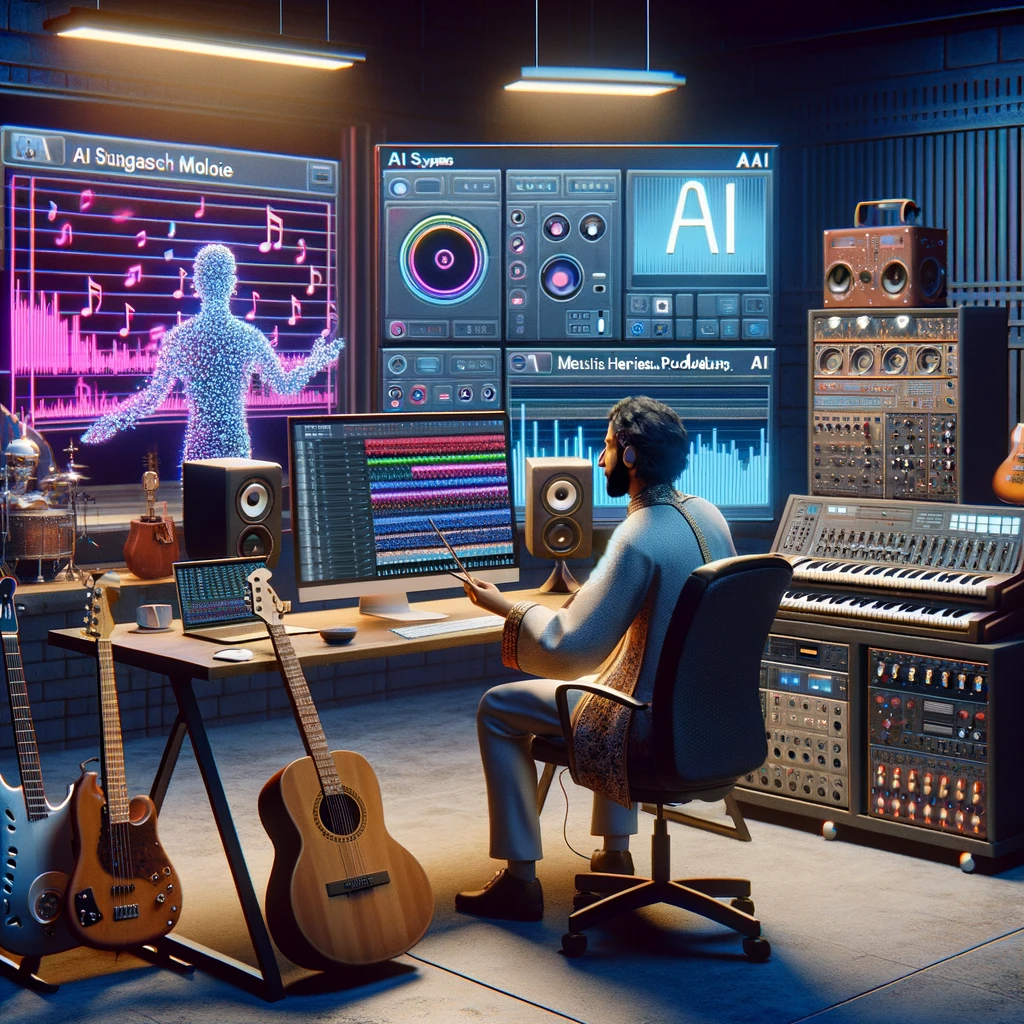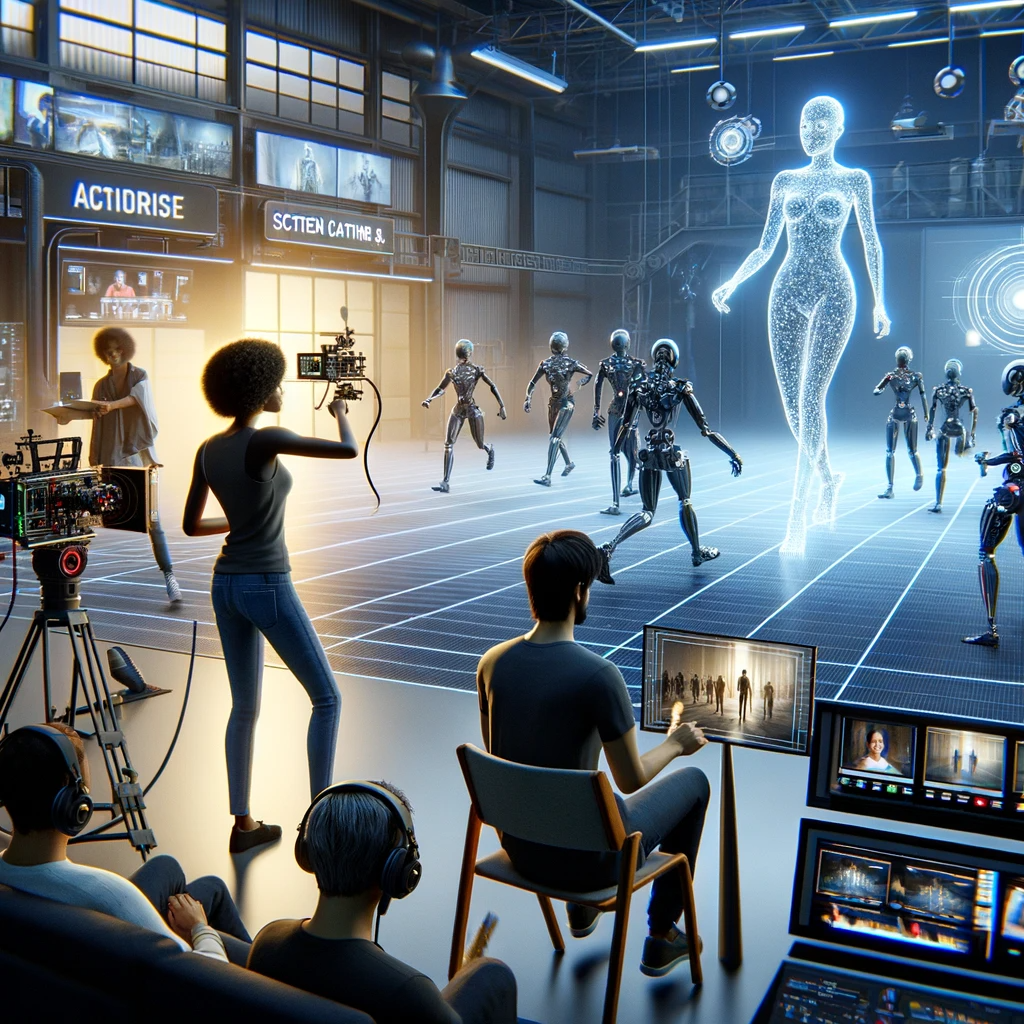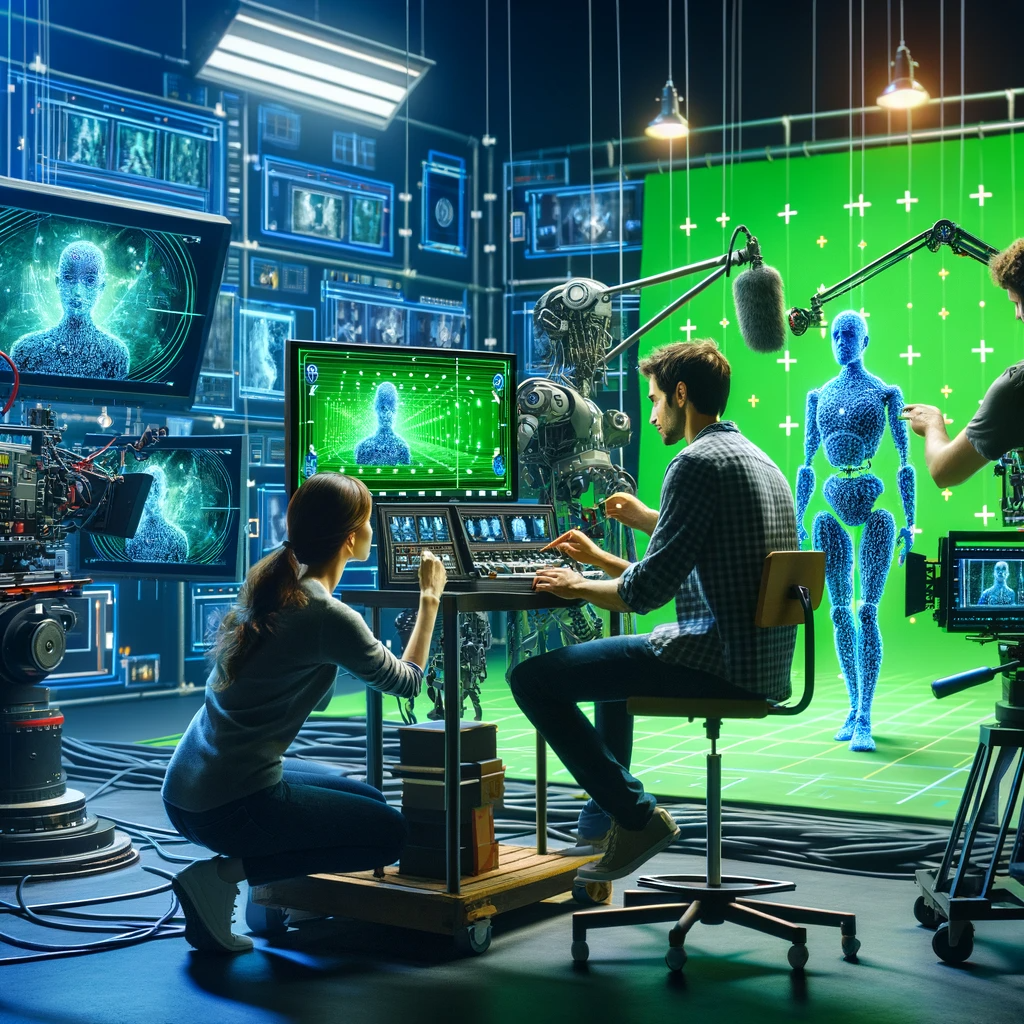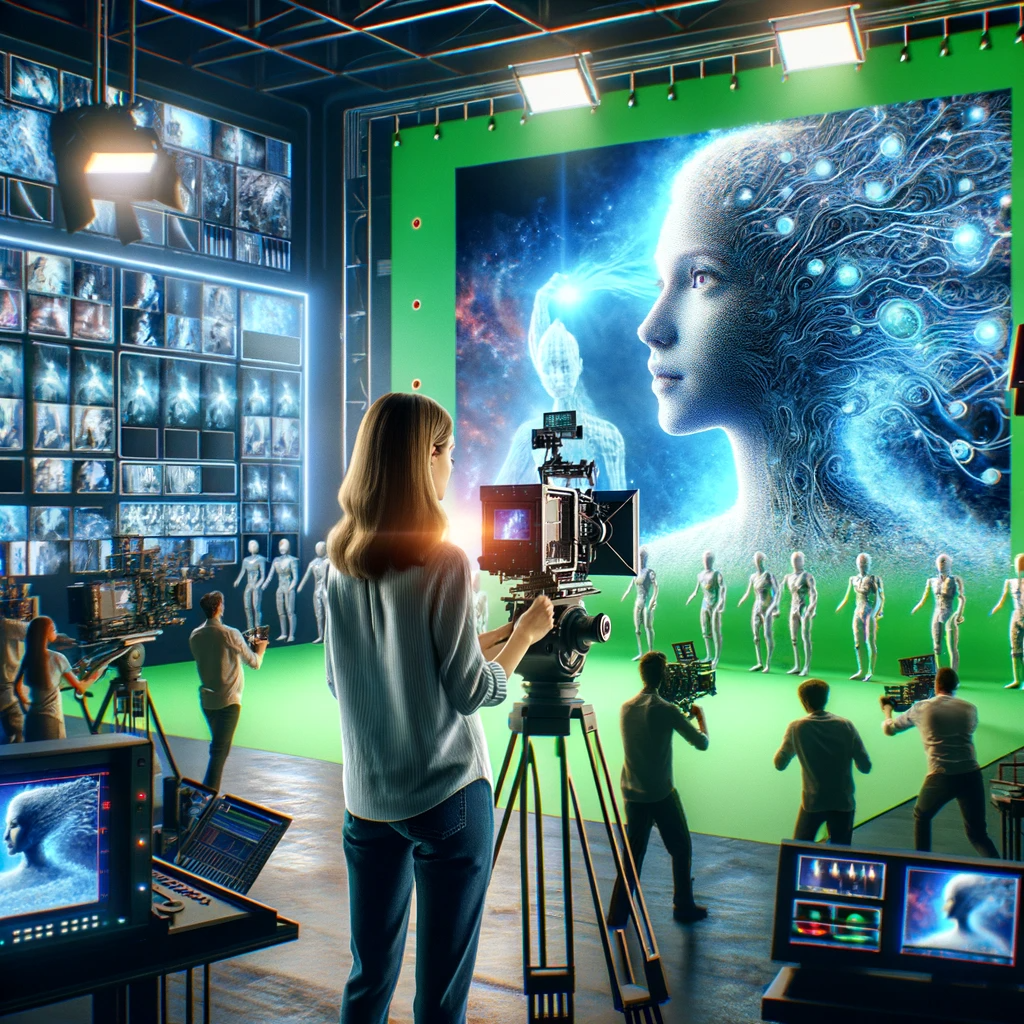Artificial Intelligence (AI) has become a game-changer in multiple industries, profoundly altering how businesses operate and engage with their audiences. Among these sectors, the entertainment industry stands out as a prime example of AI’s transformative power. In this digital age, entertainment has evolved beyond traditional formats, embracing new technologies to create more engaging, personalized, and immersive experiences. AI, with its ability to analyze vast amounts of data, learn consumer preferences, and even create content, is at the forefront of this evolution.
The infusion of AI in entertainment is reshaping the landscape in several key areas: content creation, recommendation systems, and immersive experiences. From AI-written scripts and music compositions to personalized streaming recommendations and enhanced virtual reality experiences, AI’s applications are diverse and growing. This raises the central question: How is AI reshaping these aspects of the entertainment industry?
This article will delve into the various ways AI is influencing the entertainment sector. It will explore AI’s role in content creation, analyze how AI-driven recommendation systems are changing how we discover and consume media, and examine AI’s contribution to creating more immersive and interactive entertainment experiences. Furthermore, it will discuss the ethical considerations and audience impact of these AI applications. By the end of this article, readers will gain a comprehensive understanding of AI’s multifaceted role in revolutionizing the entertainment industry.

AI in Content Creation
Artificial Intelligence (AI) is significantly revolutionizing the realm of content creation within the entertainment industry. In filmmaking, AI technologies are being utilized for scriptwriting, where algorithms analyze numerous scripts to generate new storylines and dialogues. AI’s application extends to music composition as well, where it can create original scores or even entire musical pieces, often indistinguishable from those composed by humans.
In the world of visual effects, AI is playing a crucial role in rendering complex scenes, enhancing the visual quality, and reducing the time and costs associated with production. In video games, AI is used for creating more dynamic and responsive game environments, as well as for non-player character (NPC) behavior, making them more realistic and interactive.
Case studies demonstrating AI’s impact in content creation include the use of IBM Watson to create a movie trailer for the horror film “Morgan” and AI algorithms composing music for albums and film scores. These examples showcase AI’s growing capability in generating creative and engaging content across various entertainment formats.
AI in Recommendation Systems
AI’s influence is notably evident in the recommendation systems used by streaming platforms. These platforms utilize AI algorithms to analyze vast amounts of viewer data, including viewing habits, preferences, and interactions, to personalize content suggestions. This AI-driven personalization is designed to enhance user experience by presenting viewers with content that aligns with their interests and viewing history.
The impact of AI on viewer engagement and content discovery is substantial. By offering tailored recommendations, AI helps users discover new shows and movies, increasing content consumption and viewer retention. Moreover, these recommendation systems can adapt to changing viewer preferences over time, ensuring continued relevance and engagement.
AI in Creating Immersive Experiences
In the domain of immersive experiences, AI is a key driver in the advancement of virtual reality (VR) and augmented reality (AR) technologies. AI algorithms are used to create more lifelike and interactive environments in VR, enhancing the realism and immersion of these experiences. In AR, AI contributes to the seamless integration of virtual elements into the real world, improving user interaction and engagement.
AI is also instrumental in advancing the field of gaming and virtual events. In gaming, AI is used to generate responsive and adaptive game worlds, elevating the gaming experience to new levels. For virtual events, AI technologies enable more interactive and engaging experiences, ranging from virtual concerts to online conferences.
Innovations in AI are continually pushing the boundaries of what is possible in creating immersive entertainment experiences. Examples include AI-driven interactive narratives in VR experiences and the use of AI in creating hyper-realistic virtual environments for concerts and other events. These advancements not only enhance the user experience but also open up new possibilities for storytelling and engagement in the entertainment industry.

Ethical Considerations and Audience Impact
The integration of AI in the entertainment sector brings to the forefront several ethical considerations. Data privacy emerges as a primary concern, particularly in systems that track and analyze viewer behavior for personalized content recommendations. The collection and use of such data must be managed carefully to protect viewer privacy and comply with data protection regulations. Another key issue is algorithmic bias, where AI systems, based on the data they are fed, might promote content that perpetuates stereotypes or excludes certain groups.
AI’s influence on audience behavior and expectations cannot be underestimated. With AI-driven personalized experiences, there is a risk of creating echo chambers, where viewers are only exposed to content that aligns with their existing preferences. This could limit the diversity of content consumed and narrow cultural exposure.
Moreover, there’s a debate about the balance between AI-driven content and human creativity. While AI can significantly enhance content creation, concerns arise about maintaining the unique elements of human artistry and creativity. This balance is crucial for ensuring that AI serves as an enhancer rather than a replacement of human creativity in entertainment.
Future Trends and Industry Implications
Looking to the future, AI is poised to further revolutionize the entertainment industry. Advancements in AI could lead to more sophisticated content creation tools, more accurate recommendation systems, and even more immersive VR and AR experiences. Emerging technologies like generative adversarial networks (GANs) could allow for the creation of highly realistic digital content, and AI could play a role in developing interactive and adaptive storytelling.
As AI technologies become more advanced and integrated, they will continue to reshape the landscape of media consumption and audience interaction. The future might see audiences expecting more personalized, interactive, and immersive entertainment experiences, driven by AI innovations. The role of AI in facilitating these experiences will be crucial, as it could redefine the way stories are told and experienced.

Conclusion
Throughout this exploration of AI’s transformative role in the entertainment industry, it’s clear that AI is reshaping content creation, recommendation systems, and immersive experiences in significant ways. Its growing influence is evident in how content is produced, consumed, and interacted with, leading to a dynamic shift in industry dynamics and audience behavior.
However, as AI continues to evolve and permeate the entertainment sector, it raises important questions about the future relationship between AI and entertainment. How will AI continue to influence the creative process? Can a balance be struck between AI-driven content and human creativity? What ethical considerations need to be addressed as AI becomes more embedded in entertainment experiences? The answers to these questions will shape the trajectory of the entertainment industry and determine the role AI will play in its future.
